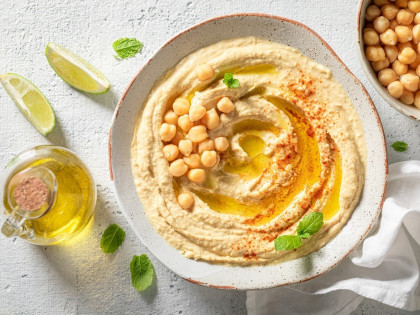The Mediterranean-DASH Intervention for Neurodegenerative Delay (MIND) Diet is an eating pattern designed to promote both heart health and brain health with the goal of reducing the risk of dementia, especially Alzheimer’s disease. Currently, around 433,300 Australians live with dementia, and this number is expected to double by 2054.
Risk factors for dementia fall into two main categories: those we can change, and those we can’t. Modifiable risk factors (those we can change) include lifestyle and health-related choices such as diet, physical activity, smoking, and alcohol use. Other modifiable risks include having high LDL cholesterol, high blood pressure, hearing loss, depression, and having little social interaction in late life. On the other hand, non-modifiable risk factors are beyond our control. These include age, family history, and genetic factors like carrying the apolipoprotein E (APOE) gene.
The MIND diet targets older adults, especially those who may be at greater risk due to these non-modifiable factors. It may also support individuals with modifiable risk factors for heart disease, such as high blood pressure, high cholesterol, atherosclerosis (hardened or blocked arteries) or have had a heart attack previously, by promoting foods that protect both brain and heart health.
How is it different to the DASH and Mediterranean Diet?
The MIND diet is a combination of two previous healthy eating patterns:
- DASH Diet: Primarily targets blood pressure control through a low salt (sodium), high potassium diet by promoting fruit, vegetables, low-fat dairy, whole grains, nuts, legumes and lean sources of protein (meat, chicken, fish).
- Mediterranean Diet: Targets heart health, promoting olive oil, legumes, fish, fruit, and vegetables.
- MIND Diet: Combines DASH and Mediterranean diets. It focuses on brain health and dementia prevention, emphasizing foods rich in antioxidant nutrients like leafy greens and berries while limiting processed foods high in added fat, sugar and salt.
What are the key benefits of the MIND diet?
1. Reduced Risk of Alzheimer's Disease and Cognitive Decline
Following the MIND diet is linked with lower risk of Alzheimer’s disease, and slower cognitive decline. It protects the brain by encouraging antioxidant-rich foods and limiting inflammatory foods to reduce damage to key areas of the brain, such as the hippocampus, which is critical for memory.
2. Cardiovascular Health
The MIND diet has been linked to fewer cardiovascular events, including stroke, especially in individuals with pre-existing risk factors like hypertension or heart attack. High fibre foods like wholegrains, vegetables and legumes help to improve LDL and total cholesterol - supporting both brain, and heart health.
What foods are eaten in the MIND diet?
The diet centres on whole, fresh foods, rich in health omega-3 fat, and foods rich in antioxidant nutrients and polyphenols. These nutrients help protect brain cells, reduce inflammation, and support healthy blood flow.
Key foods include green leafy vegetables, other vegetables, berries, wholegrains, legumes, beans, fish and seafood, nuts and seeds, poultry, olive oil, and wine (in moderation).
The MIND diet discourages foods that are linked with poorer brain and heart health. This includes red and processed meats, full-fat cheese, pastries and sweets, fried foods, and fast-foods high in saturated fats and added sugars.
|
Key Foods |
Recipes to Try |
|
Green Leafy Vegetables: spinach, kale, collard greens, lettuce |
|
|
Berries: Blueberries, strawberries, blackberries |
|
|
Nuts & Seeds Almonds, walnuts, pistachios |
|
|
Legumes: Lentils, chickpeas, beans |
|
|
Wholegrains: Oats, brown rice, quinoa, whole grain bread. |
|
|
Fish & Seafood: Salmon, mackerel, sardines |
|
|
Poultry: Chicken, Turkey |
The Bottom Line
The MIND diet is a brain-healthy eating pattern designed to reduce the risk of Alzheimer’s disease, slow cognitive decline, and protect brain structure. While especially important for older adults and those at risk of dementia, its focus on fresh, whole foods makes it a smart choice for anyone looking to support overall health and wellbeing.
Not sure where to start? Take the Healthy Eating Quiz, to find out where you can make improvements to foods you eat, to improve your overall health, and support the optimal functioning of your brain, now and in the future.
To hear Professor Clare Collin’s and Dr Puja Agarwal unpack all things MIND diet, dementia, and nutrition, check out the latest episode of Nutrition Science Bites, What is the MIND diet for dementia? And does what you eat matter for brain health? with Dr Puja Agarwal.













